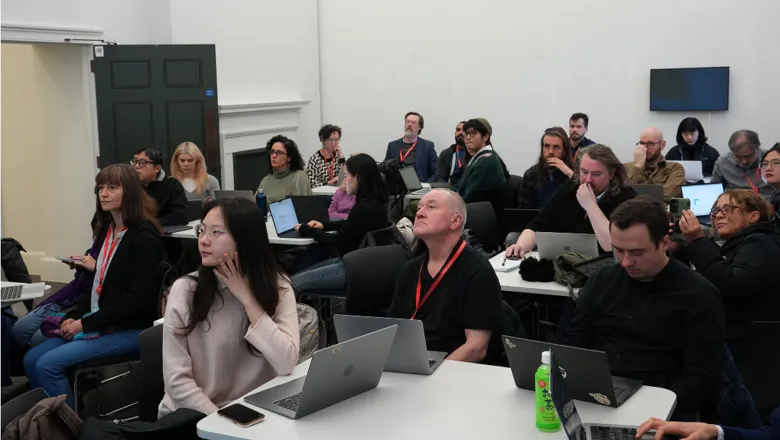KingsCAT - new 4CAT instance for collaborative social media research at King's
November 29, 2024
We recently set up a new instance of the open source 4CAT: Capture & Analysis Toolkit for collaborative research at King’s. More in this post and copied below.
‘Gather, explore, collaborate’ – new toolkit to enrich digital culture research at King’s
KingsCAT is a cross-faculty initiative coordinated by the Digital Future Institute’s Centre for Digital Culture and the Department of Digital Humanities in collaboration with e-Research and colleagues from multiple institutes, centres, departments and schools at King’s.
KingsCAT, a new customised instance of the open source 4CAT: Capture and Analysis Toolkit, is now available for academics at King’s. Set up with support from the King’s College London Research Infrastructure Fund, this toolkit aims to support interdisciplinary and collaborative social media research.
4CAT was created by the Digital Methods Initiative at the University of Amsterdam and OILab, an Amsterdam-based research network. Dr Stijn Peeters, Assistant Professor at the University of Amsterdam and lead developer of 4CAT, introduced King’s academics to the toolkit during a workshop on 21 November.
4CAT captures and analyses collections of data from platforms such as Douyin, Facebook, Instagram, LinkedIn, Tiktok, Twitter/X, Tumblr, YouTube and Weibo. It does not require any programming skills and is currently used by researchers, students, journalists and civil society groups around the world.
The KingsCAT principal investigators hope the project will help to remove barriers and increase access and support for innovative and interdisciplinary digital media research.
“This research infrastructure has significantly enriched our work as digital media and culture researchers. We look forward to seeing how our colleagues will use it to surface insights and deepen digital culture research at King’s.” - Dr Liliana Bounegru, Senior Lecturer in Digital Media, Culture and Society, Department of Digital Humanities
“How is social media shaping how we live together? With this open source tool researchers across King’s will be able to gather, explore and collaborate around collections of online materials related to what they are working on – from environmental pollution to wellness cultures to disinformation campaigns.” - Dr Jonathan Gray, Director, Centre for Digital Culture and Reader in Critical Infrastructure Studies, Department of Digital Humanities
King’s researchers have previously used 4CAT in several research projects, including a REF impact case study on viral misinformation, a UKRI project on COVID-19 conspiracy theories, a NERC funded project mapping the politics of nature-based solutions, a multi-institutional collaboration on COVID-19 testing, ESRC/CHANSE and AHRC funded projects on conspiracy theories, and an H2020 project on forest restoration.
It has also facilitated external research collaborations and knowledge exchange activities with media and civil society organisations such as the European Journalism Centre, Global Witness, Media Matters for America, Politico, Britain’s East and South East Asian Network (besea.n), Surrey Wildlife Trust and the European Forest Institute.
